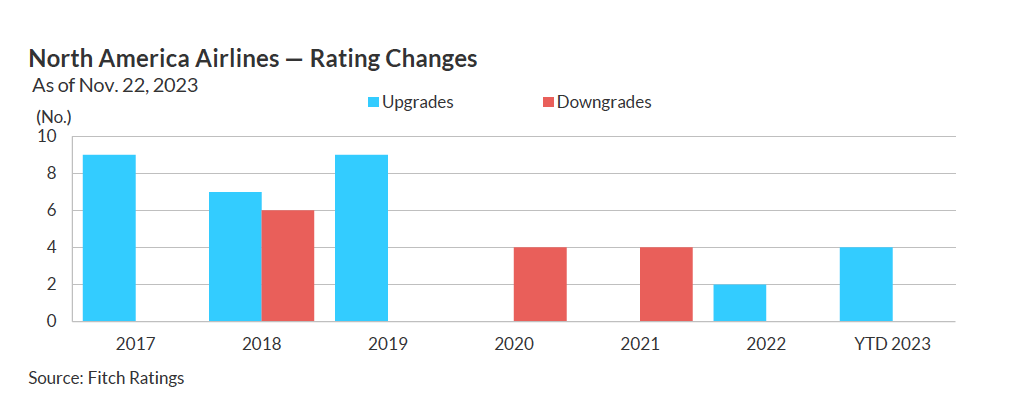Next year looks to be a less volatile year for U.S. transportation as the U.S. economy heads towards a possible slow down, according to Fitch Ratings in its 2024 outlook report for the sector.
Fitch economists are calling for the U.S. economy to slow progressively in 2024 as higher interest rates and a deceleration in bank credit weigh on consumer spending and private investment. Fitch is keeping its sector outlook for airports, toll roads and ports at ‘neutral’ in spite of the broader economic picture.
“Airports, toll roads and ports have remained remarkably resilient in the face of a more volatile economy the last few years and are in a better fiscal position overall heading into 2024 as the operating environment has stabilized,” said Seth Lehman, senior director.
How the broader economy evolves in the coming months, however, will be closely watched. “Stickiness in inflation driving higher operating costs and either weaker operating income or further pressures to pricing to end users, could drive a negative sector outlook,” said Lehman.
U.S. and Canadian airports have largely reached pre-pandemic passenger levels with added, albeit mild growth likely for next year, Fitch predicts.
“While consumer spending for travel still remains healthy, the general economic pressures may diminish the demand,” the ratings organization said in its report. “Large-hub airports dominate the overall traffic activity and the range of expected traffic growth in 2024 ranges widely as those airports that are still lagging in recovery from pre-pandemic levels anticipate additional “catch-up” growth. Higher international travel or airline service expansion at these facilities would be leading sources to drive such growth.
While Fitch is predicting mild positive traffic growth, it warned that underperformance could be driven by weaker economic conditions affecting demand or increased airline industry disruptions. Strength in both business and international travel would be a positive for the sector.
“Canada’s passenger traffic recovery has been slower than the U.S. due to prolonged travel restrictions, but is now close to a parity full recovery level,” the study said. “YTD 2023 traffic is about 92% recovered relative to the same period pre-pandemic following mid-90% levels throughout the summer months. Continued growth into 2024 is expected but likely at a more moderate pace due to the continuation of higher inflation and economic pressures. A full national recovery is still expected no later than 2025.”
Fitch also warned that greater capital spending with debt poses risks. “Growing capital budgets are a key source of sector pressure for airports, particularly if leverage metrics rise in 2024 and beyond. Airports with greater timing flexibility to undergo capex programs and those with access to significant amounts of federal grants and other nondebt funding sources can offset these sector pressures. Still, increased project execution risk across elevated capex activities can create heightened risks for the sector,” the report said.
The outlook report noted that airline use and lease agreements are increasingly being renewed with provisions that include high levels of cost recovery, which allow airports to retain or even build higher cash reserves. In turn, Fitch expects sector financial metrics to remain stable even with more anticipated borrowings. The airport sector could come under stress if flexible contractual terms are adjusted such that operating cash flows does not keep up with higher-than-expected costs or material reductions in traffic, the report said.
Fitch said that transportation public private partnerships (P3s) remain highly relevant for project delivery and risk sharing, though construction period risks remain a lingering area of concern. “Some projects with material delays in completion dates or taking on upward cost adjustments have resulted in challenges with grantors to resolve differences and could result in negative rating actions,” said Lehman.







